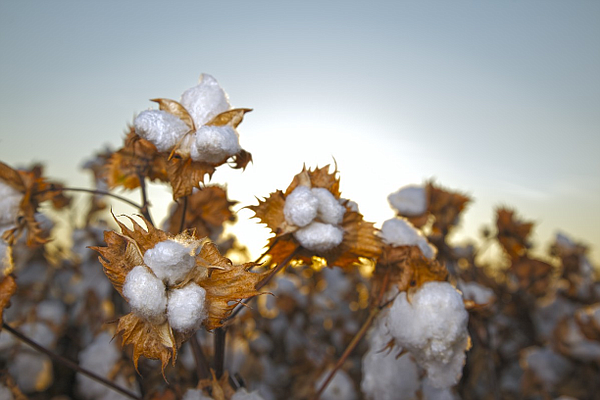SUPPLY CHAIN
ADNAS Receives Notice of Allowance on Cotton-Tagging Technology Patent
Advancing its reach into authentication technologies to thwart the counterfeit-goods trade and provide increased transparency in fashion, Applied DNA Sciences announced that it received a notice of allowance regarding its tools, which afford DNA tagging of cotton fibers during the ginning process. The new technology advances the Stony Brook, N.Y., company’s DNA Transfer System technology, which is a crucial facet of its CertainT raw-materials authentication platform. ADNAS revealed that it has tagged more than 300 million pounds of cotton, resulting in a traceable product.
“The extension of our patent protection to cover our method of DNA-tagging cotton demonstrates our commitment to broadly protect our CertainT platform and ensure our ability to deliver supply-chain security and authenticity to current and future CertainT customers,” Dr. James Hayward, president and chief executive officer of ADNAS, said in a statement.
Titled “Method and Device for Marking Fibrous Materials,” the technology described within the patent application applies a marker of authenticity to cotton fibers as they are processed through a gin’s forced-air system. According to MeiLin Wan, vice president of textile sales, the DTS technology is available for permanent or temporary installation on any gin. The company has worked with clients in the United States, Egypt and Australia to install DTS systems.
“The key to the CertainT platform for cotton is the ability to cost effectively tag cotton in very large quantities while concurrently collecting data that informs the supply chain down to each individual bale—the date, time, location of tagging, the type of cotton being tagged, among others—through the use of our DTS to give brand owners the assurance that their cotton, their brand and their supply chains are secure through to their end customers,” Wan explained.
Recognizing the challenges to the textile supply chain around the world, Hayward also emphasized that, during this time of global strife, consumers are increasingly committed to researching products made from materials that are traceable.
“Despite the downturn in global economic activity that has impacted the global textile supply chains we serve, supply-chain certainty and social responsibility remain fundamental to the textile industry’s long-term strategy,” Hayward said. “We believe the COVID-19 pandemic has increased consumer awareness of the need for authenticity in such textiles as those used in personal protective equipment.”






















